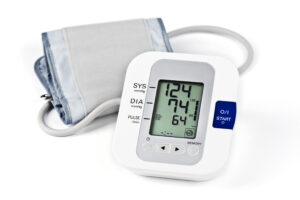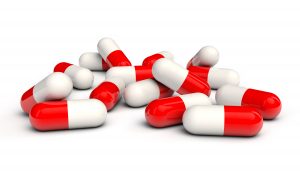Agitation
The period of Post Traumatic Amnesia (PTA) after brain injury can be considered to be a specific type of delirium. Treatment of agitation should address all potential contributory factors including:
- Infection.
- Pain.
- Urinary retention.
- Constipation.
- Electrolyte disturbances (e.g. hyponatraemia).
- Nutritional deficiencies.
- Confusion, anxiety and distress.
- Environmental factors (e.g. noisy busy settings).
Please refer to the section on Early Management Issues.
 Drug and/or alcohol withdrawal can lead to agitated behaviour in the early stages after brain injury. Symptoms of drug withdrawal may occur if prescribed or illicitly used benzodiazepine or opiate medications are omitted or reduced rapidly during or following transfer from intensive care or high dependency settings to medical/surgical wards.
Drug and/or alcohol withdrawal can lead to agitated behaviour in the early stages after brain injury. Symptoms of drug withdrawal may occur if prescribed or illicitly used benzodiazepine or opiate medications are omitted or reduced rapidly during or following transfer from intensive care or high dependency settings to medical/surgical wards.
If the person’s history or presentation suggests an alcohol withdrawal state (with tremor and anxiety in the mildest form, or hallucinations and delusions in the most severe ‘delirium tremens’ form), treatment with benzodiazepines and intravenous thiamine (‘Pabrinex’) should be commenced as per local protocols. The use of regular benzodiazepines should be avoided where possible after brain injury; however they are essential in the immediate treatment of alcohol withdrawal.
Care should be taken to ensure that benzodiazepines are not continued for more than five to seven days during the alcohol withdrawal state. Benzodiazepines (e.g. Diazepam, Lorazepam) administered on a regular basis may impair cognitive function and increase agitation and confusion. It is important to note that if benzodiazepines have been prescribed regularly over a period of weeks (e.g. during care in and intensive treatment unit), the dose should be gradually reduced to prevent a withdrawal state from occurring.
Persistent problems with agitation and aggression are common following brain injury. The use of ‘as required’ benzodiazepines may be considered in some cases for the management of episodes of severe agitation.
Withdrawal from illicit or non-prescribed drugs (such as opiates or benzodiazepines) can contribute to agitation and should be managed as per local protocols.
Nicotine withdrawal can worsen anxiety and agitation. Nicotine replacement (patches/lozenges/inhalators) should be considered for smokers who find themselves in hospital for any reason.
 Propranolol may be helpful in the management of agitation and aggression following brain injury. This should be commenced with doses of 20 mg twice daily, increasing gradually to 80 mg twice daily, as tolerated. Use caution when titrating the dose and monitor pulse and blood pressure carefully. Please be aware that Propranolol:
Propranolol may be helpful in the management of agitation and aggression following brain injury. This should be commenced with doses of 20 mg twice daily, increasing gradually to 80 mg twice daily, as tolerated. Use caution when titrating the dose and monitor pulse and blood pressure carefully. Please be aware that Propranolol:
- May cause bradycardia and hypotension.
- May cause bronchospasm in those with asthma.
- Should not be used in those with unstable or severe heart disease, asthma or chronic obstructive airways disease.
- May prevent the symptoms of hypoglycaemia occurring and therefore should be avoided in those with insulin dependent diabetes mellitus or those on oral hypoglycaemic medication.
Please refer to the British National Formulary (BNF) for contraindications and adverse effects before prescribing.
Trazodone can be a helpful drug in the management of agitation following brain injury. This should commence with a dose of 50 mg daily gradually increasing, as tolerated, up to a maximum of 300 mg daily in divided doses. Trazadone may also help to support restoration of the normal sleep wake cycle if given at bedtime.
Where Propranolol and/or Trazadone and behavioural modification approaches have been ineffective in reducing agitation or are contra-indicated, then the use of antipsychotic medications (e.g. Olanzapine, Quetiapine, Risperidone) can be considered. These drugs should be used with extreme caution due to their potential side effects. They may cause prolongation of the QTc interval on ECG, with risk of fatal ventricular tachyarrythmias. ECG monitoring is required. Please be aware that antipsychotic medication may impair cognitive function and increase agitation and confusion. If a trial of an antipsychotic is ineffective, it should be withdrawn because risks (extrapyramidal and metabolic side effects) may outweigh benefits.
Sleep Disturbance
Trazodone (25 – 100 mg) or Melatonin (2-3 mg)  may be helpful in the management of sleep disturbance. The use of benzodiazepines on a regular basis should be avoided in the management of sleep disturbance if possible. Please click on the following link for helpful advice on managing sleep disturbance after brain injury: How to Help the Person with Sleep Problems
may be helpful in the management of sleep disturbance. The use of benzodiazepines on a regular basis should be avoided in the management of sleep disturbance if possible. Please click on the following link for helpful advice on managing sleep disturbance after brain injury: How to Help the Person with Sleep Problems
Emotional Lability
Following brain injury, Selective Serotonin Reuptake Inhibitor (SSRI) antidepressant drugs can be effective in the management of emotional lability (including pathological laughter and crying). Sertraline may be a helpful first choice in terms of side effect profile and tolerability. Other SSRIs i.e. Fluoxetine, Paroxetine and Citalopram, may be helpful. Low dose Amitriptyline (50-75 mg) has also been reported to be effective in some patients, however, it should be used with caution given the risk of anticholinergic and cardiotoxic side effects.
Please refer to the section detailing Potential Harmful Side Effects of Antipsychotic Medication and Benzodiazepines.